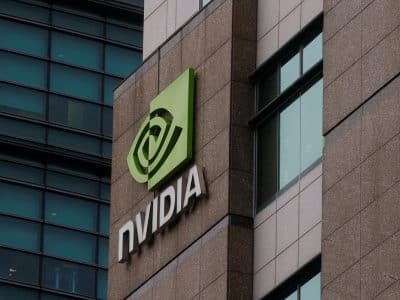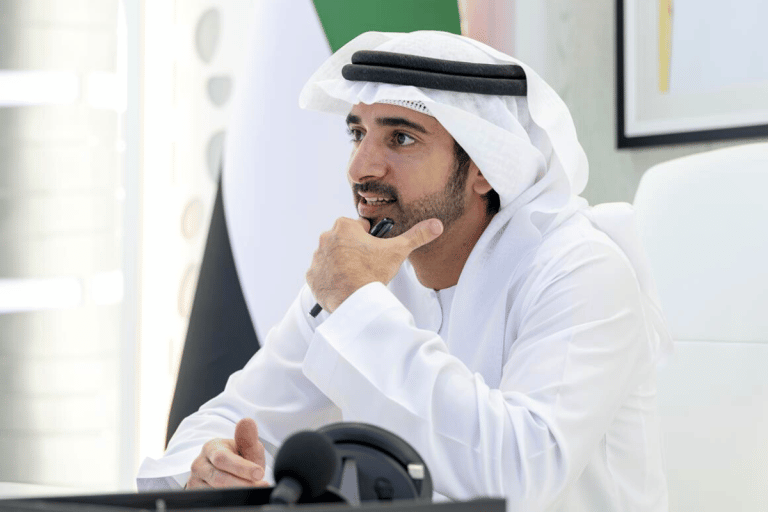The emergence of Web 3 and the metaverse will have “endless” possibilities of how it could impact industries and communities in the UAE, experts told the Arabian Business UAE Forum.
According to David Zennie, chief executive officer of Disruptive, the metaverse could allow us to create new worlds and redefine how business is done – a major pivot from the “transactional” nature of Web 2, or the internet as we know it now.
The UAE has grown in potential in becoming a hub for both talent and innovation in the space.
Dubai’s recently announced plan to boost the contribution of the metaverse to the economy to $4 billion by 2030 will be supportive of the emirate’s overall growth and improve the lives of residents, experts explained.
Announced last month by Dubai Ruler Sheikh Mohammed bin Rashid Al Maktoum, the strategy aims at ensuring that the metaverse increases its contribution to 1 percent of the emirate’s overall GDP. Headed by the Dubai Crown Prince Sheikh Hamdan bin Mohammed bin Rashid Al Maktoum, the strategy is built around five pillars – innovation, government implementation of metaverse technologies and talent development.
The strategy includes doubling the number of metaverse and blockchain companies in Dubai, as well as creating 40,000 jobs in the sector.
The move consolidates Dubai’s position as “a leading global hub for innovative new concepts and disruptive economic and technological models,” a statement on Wam said.
Here is everything you need to know about Dubai’s Metaverse Strategy, along with expert insights:
- Five pillars of Dubai’s Metaverse Strategy and how businesses can make the most of it
- Dubai crown prince to lead new committee on metaverse
- Global event with metaverse experts to be hosted in Dubai
- Insights from McKinsey & Company’s report – Value creation in the metaverse
- Dubai Metaverse Strategy to benefit physical, virtual lives of people, businesses: Experts
- Dubai set to put metaverse into a legal framework
- Dubai’s focus on the metaverse and digital economy
Five pillars of Dubai’s Metaverse Strategy and how businesses can make the most of it
Dubai launched its metaverse strategy on 18th July, where it aims to raise the sector’s contribution to the local economy to $4 billion.
The emirate’s Crown Prince Sheikh Hamdan bin Mohammed bin Rashid Al Maktoum announced the new initiative on Twitter, explaining how it aims to double the number of metaverse-related companies in the emirate in the next five years.
“Today, we launched the Dubai Metaverse Strategy, the next revolution in the technological and economic field. We have 1,000 companies in Dubai currently working in this sector, which contributes $500 million to our national economy. We expect it to rise strongly during the coming period,” he said on the day.
The Dubai Metaverse Strategy is based on five pillars, which includes:
- government adoption of metaverse technologies,
- talent development,
- and a focus on innovation.
Sharing his thoughts in an exclusive interview with Arabian Business, the regional director for MENA at Meta, Fares Akkad, said: “At Meta, we’re committed to building technologies that help millions of people who use our platforms to express themselves, stay connected to their loved ones and their communities, and start and grow businesses. We’re helping build the next evolution in social technology – the metaverse.”
Meta’s business strategy aligns with the growing emergence of digital creatives in the Middle East and North Africa region.
According to a World Bank report released in 2022, the universal adoption of digital technologies in countries across the Middle East and North Africa (MENA) is expected to create a much-needed surge in jobs and reap huge socio-economic benefits worth hundreds of billions of dollars each year.
Akkad added: “Digital creatives represent a powerfully diverse pool of talent — one that holds the key to reaching the next billion people who are coming online. We believe technology is giving people new opportunities to become entrepreneurs and content creators, and the metaverse has a big role to play here.”
At the apex of the digital technology boom in the region, the metaverse is expected to help unlock economic opportunities for communities and businesses across industries.

“The mobile internet has already allowed people to work, learn, and socialise in ways that are less limited by their physical location. The metaverse will help expand these opportunities even further,” Akkad explains.
“For instance, people will be able to choose to study and train in places that felt off limits because of where they lived or what they could afford. These could help spread economic opportunities and help grow significant sectors of the global economy.”
He adds: “While it’s an exciting and promising vision — there’s still a long road ahead, and for many businesses — the best way to get started is by leaning into their existing marketing strategy today; and start imagining the opportunities for the future.”
“Building the metaverse will be more like how the internet came about than how any one app was launched. Meta isn’t going to build, own, or run the metaverse on its own. Bringing the metaverse to life will require collaboration and cooperation across companies, developers, creators, and policymakers to ensure an open, interoperable, and inclusive metaverse,” Akkad added.
“We are only at the start of this journey and a lot still has to happen before this vision of the metaverse becomes a reality.”
Responding to what precisely needs to be done in order to bring the metaverse to life, Akkad pointed to three key factors:
- Hardware needs to be built: Even if we just look at AR, to bring this vision to life we basically need to fit a supercomputer into a pair of normal-looking glasses. We have to fit hologram displays, projectors, batteries, radios, custom silicon chips, cameras, speakers, sensors to map the world around you and more into glasses about 5 millimeters thick. This is still years in the making.
- Infrastructure needs to be transformed: Models will need to be larger and more complex and there will need to be a dramatic shift towards cloud-based infrastructure to help deliver a scalable platform to support the metaverse.
- Access needs to be improved: Our vision is for the metaverse to reach a billion people in the next decade, but for that to happen, access to hardware has to improve and connectivity across the world has to increase.
How businesses can make the most of the metaverse
When asked how businesses can make the most of the metaverse in its nascent stages, Akkad said that it was important for businesses to stay focused on the smart strategies they are using today to reach customers and grow, which will help prepare them for the metaverse of tomorrow.
He explained: “For now, the primary way people will experience the metaverse is through 2D apps, including Facebook, Instagram, Messenger, and WhatsApp. And beyond that, we are focused on building bridges from our apps on 2D screens into more immersive virtual 3D experiences in the metaverse.
“To start planning for this future, it is important for brands to continue growing their brand and business in the digital space on our 2D apps.”
Meta has also begun testing tools to sell digital assets and experiences within its Horizon Worlds platform, which is an expansive virtual reality social media platform focused on virtual events.
Developers who are creating virtual classes, games, and fashion accessories within the Meta’s immersive virtual reality environment, which is accessible via VR headsets, will be able to sell their accessories or offer paid access to the specialised digital spaces they have built.
Dubai crown prince to lead new committee on metaverse
Dubai has created a new committee to deliver on its aim to become a global hub for futuristic technologies.
The Higher Committee for Future Technology and Digital Economy will be chaired by Dubai Crown Prince Sheikh Hamdan bin Mohammed bin Rashid Al Maktoum.
Role of the higher committee
The new committee is tasked to design policies and analyse trends for the digital economy and future technologies, including the metaverse, artificial intelligence, blockchain, Web3, and other modern tech concepts.
“We are working as a team to enhance Dubai’s position as a global birthplace and research laboratory for future technologies and one of the world’s top 10 metaverse economies, in line with the Dubai Metaverse Strategy,” the Dubai crown prince said.
The new committee, announced following the Dubai Metaverse Strategy, will also work to identify future skills needed for the digital sectors.
It will also initiate plans to attract international companies and conferences specialising in future technologies and the digital economy.
Also led by Sheikh Hamdan, the Dubai Metaverse Strategy was launched to attract more than 1,000 companies in the fields of blockhain and metaverse. The strategy also aims to create more than 40,000 jobs in the fields by 2030.
Global event with metaverse experts to be hosted in Dubai
Dubai is hosting a global event that will bring together metaverse experts in September – following its rollout of a dedicated strategy to boost the sector’s contribution to its economy.
Announced by Crown Prince Sheikh Hamdan bin Mohammed bin Rashid Al Maktoum, the Dubai Metaverse Assembly will be held on September 28 and 29 at the emirate’s iconic Museum of the Future.
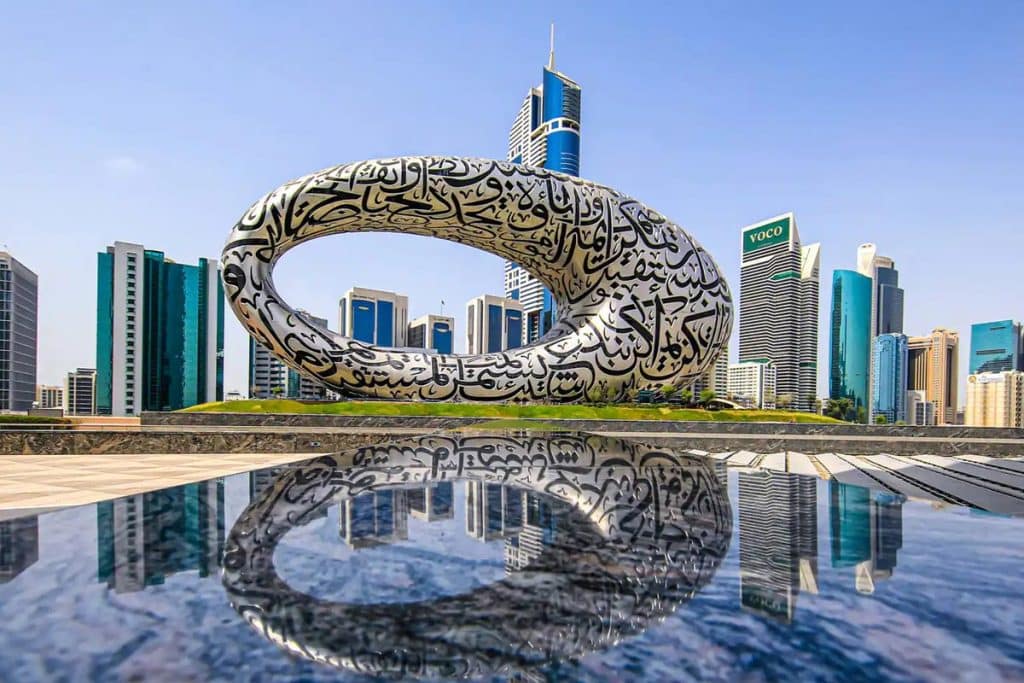
It will explore how the technology “can be deployed across vital sectors to create a better future and quality of life for humanity,” according to a statement on WAM.
The event is expected to draw in more than 300 experts, policymakers, and thought leaders from more than 40 organisations – who will engage in sessions and workshops about the advanced technology.
“The metaverse is a promising digital world. We aim to harness this technology to enhance the quality of life in the UAE and across the globe,” the Dubai crown prince said. “We want Dubai to lead globally in adopting the technology of the future, understanding its developments, harnessing its potential, and driving change.”
It is estimated that the metaverse market could reach up to $30 trillion within 15 years.
The announcement comes after Sheikh Hamdan unveiled the Dubai Metaverse Strategy, which he hopes to contribute a sum of $4 billion to the emirate’s economy.
Insights from McKinsey & Company’s report – Value creation in the metaverse
The metaverse is becoming ‘too big to ignore’ with a preliminary forecast showcasing the technology trend likely to grow up to $5 trillion in value by 2030, according to the latest report released by McKinsey & Company.
The Value creation in the metaverse report also highlights e-commerce as the largest economic force with a value of $2.6 trillion, ahead of sectors such as virtual learning worth $270 billion, advertising worth $206 billion, and gaming worth $125 billion.
“The metaverse represents a strategic inflection point for companies, and it presents a significant opportunity to influence the way we live, connect, learn, innovate, and collaborate,” Eric Hazan, the senior partner at McKinsey & Company, said.
As companies of all different shapes and sizes look to enter the metaverse, this extensive report provides a clear view of what the virtual world is and is not, what first movers are doing, what’s fueling the investment, and the potential for consumer and B2B companies.
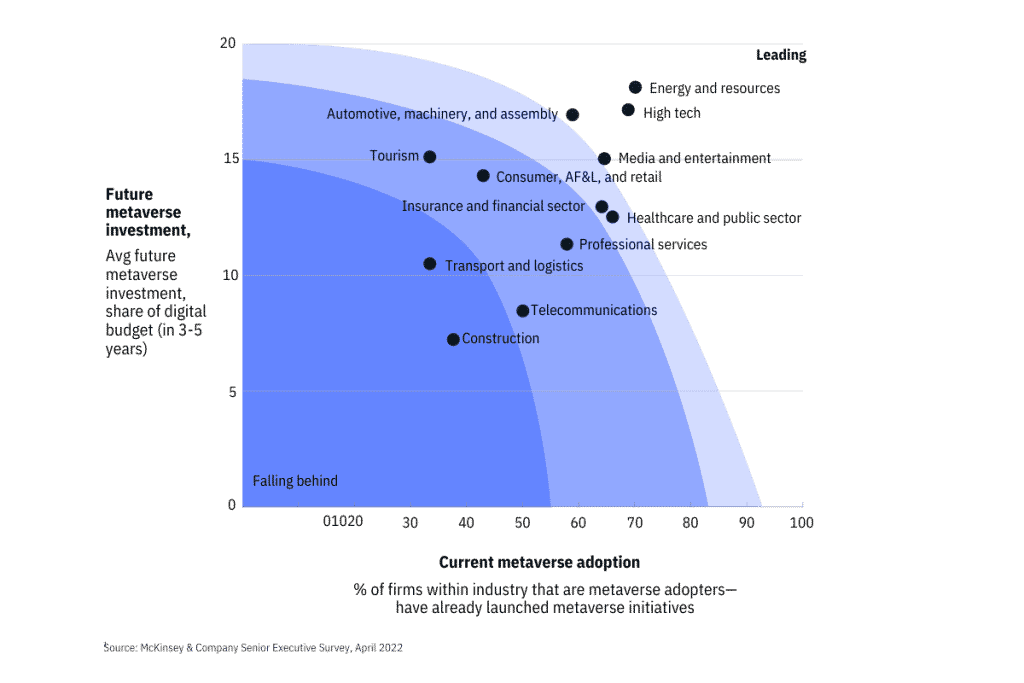
The report builds on multiple proprietary insights and analysis, including a survey of more than 3,400 consumers and executives on adoption of the metaverse, its potential, and its likely impact on behavior. The researchers also interviewed metaverse builders and industry experts.
Already this year, companies, venture capital, and private equity firms have invested more than $120 billion in the metaverse — more than double the $57 billion invested in all of last year.
Multiple factors are driving the metaverse investment enthusiasm:
- ongoing technological advances across the infrastructure required to power the technology
- demographic tailwinds
- increasingly consumer-led brand marketing and engagement
- increasing marketplace readiness as users explore today’s version of the virtual world, which is largely driven by gaming while applications emerge in socialising, fitness, commerce, virtual learning, and other uses
Already, more than three billion gamers worldwide have access to different versions of the metaverse.
“While the idea of connecting virtually has been decades in the making, it is now increasingly real, meaning real people are using it and spending real money and companies are betting big,” said Lareina Yee, senior partner, McKinsey & Company.
“Yet this booming interest has made it difficult to separate hype from reality. It’s worth remembering that while the bust of the first dot-com boom resulted in the disappearance of scores of companies, the internet itself went from strength to strength, giving rise to new entrants.”
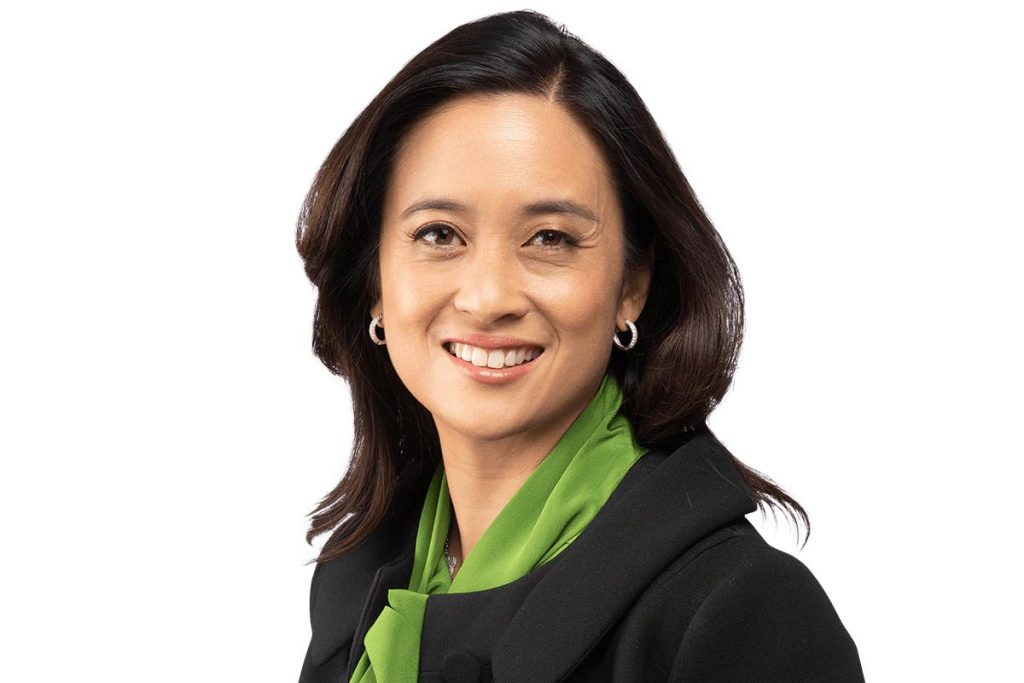
McKinsey’s research shows consumers are excited about transitioning life into the metaverse, with almost six in ten – 59 percent – consumers preferring at least one tech experience over its physical alternative.
Among those consumers, certain types of activities stand out for being most preferred in the immersive world:
- shopping—purchasing physical or virtual goods (79 percent)
- attending virtual social events or playing social games (78 percent)
- exercising using virtual reality (76 percent)
Business leaders see the metaverse’s potential to drive impact and margin growth.
Ninety-five percent of leaders say they expect the metaverse to have a positive impact on their industry within five to ten years, with 31 percent saying the metaverse will fundamentally change the way their industry operates.
More significantly, a quarter of leaders expect the metaverse technology to drive more than 15 percent of their organisation’s total margin growth in the next five years.
“The metaverse has put us at the cusp of the next wave of digital disruption,” said Tarek Elmasry, senior partner, McKinsey & Company.
“It’s transformative. It will likely have a major impact on our commercial and personal lives, which is why businesses, policymakers, consumers, and citizens may want to explore and understand as much as they can about this phenomenon, the technology that will underpin it, and the ramifications it could have for our economies and wider society.”
Dubai Metaverse Strategy to benefit physical, virtual lives of people, businesses: Experts
Dubai’s recently announced plan to boost the contribution of the metaverse to the economy to $4 billion by 2030 will be supportive of the emirate’s overall growth and improve the lives of residents, experts explained.
Bas Lemmens, general manager EMEA for blockchain data platform Chainalysis, said that these pillars had been “rightly earmarked,” and lauded the government’s proactive efforts to “pioneer new digital frontiers” in the metaverse revolution.
“This revolution is already gaining momentum, with VR technology, virtual real estate and blockchain all working together to bring us closer to a meaningful digital ownership,” Lemmens told Arabian Business.
The metaverse has a remarkable time ahead of it now that it is backed by the Dubai government, Lemmens added, explaining that is already getting attention not just in the emirate, but globally due to the emirate’s efforts of being a global market across all sectors.
However, an “emerging space” like the metaverse can only be a driver of GDP if it relies on current and future utilities, according to Lemmens.
In addition, those branching out in the fields of metaverse and blockchain must be well-versed in the sector and its functions.
“A deep understanding of blockchain, NFTs and other elements that will enable the metaverse is what will allow innovators in the field to envision and transform into reality powerful and impactful use cases for citizens, consumers, and businesses,” Chainalysis’ Lemmens said.
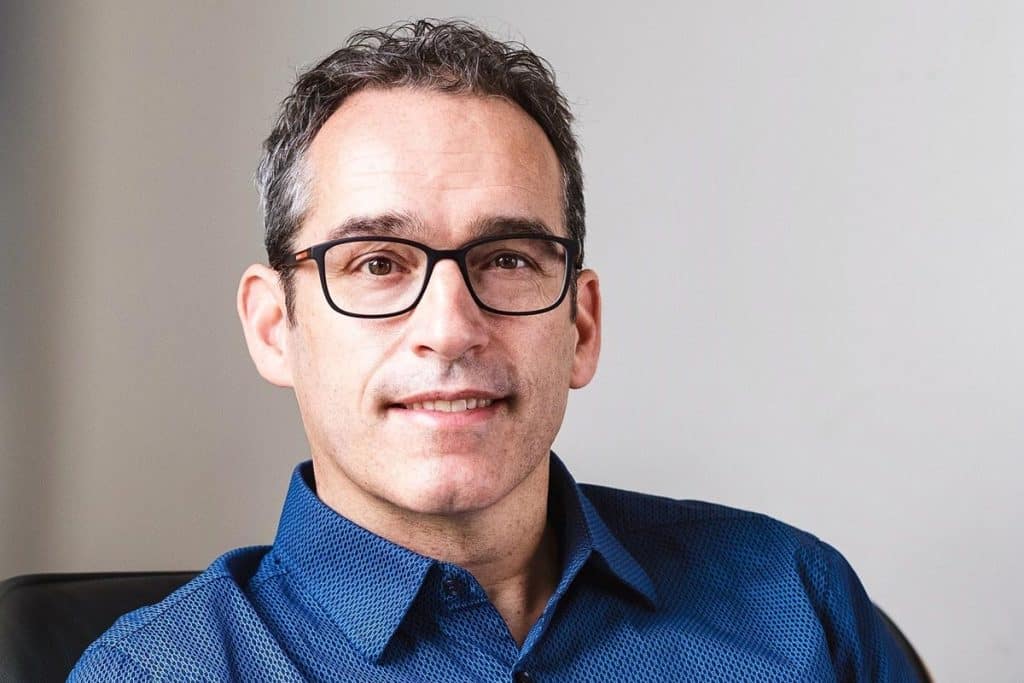
For Shadman Sakib, a tech entrepreneur and investor known for his short-video platform Vurse, the recently launched strategy reflect Dubai’s efforts to use and develop technology to ensure seamless living – be it physical or virtual.
However, the metaverse isn’t just another buzzword that will fade over time. It is “the next evolutionary step in the age of connectivity,” Sakib explained, for individuals and businesses alike.
“It [the metaverse] promises to bring our digital and physical lives closer together in terms of health, socialising, efficiency, shopping, and entertainment,” Sakib said.
Sakib also noted that the metaverse will drive more than just an individual’s identity and digital ownership, especially due to evolving technology.
“Just like the internet changed the way we shop and how it facilitated e-commerce, the metaverse will see new models of e-commerce evolve into something more,” Sakib said.
Today, businesses both in Dubai and globally are reinventing themselves to be part of the new-age revolution, while others remain sceptical.
On seeing this shift, Sakib expressed emphasised how companies must make use of this time to think, plan and execute their shift, right from marketing activations, to holistic brand strategies.
“We should all be getting ready to live in a vast digital world, rather than being the last ones to jump on the bandwagon, because [the development of the metaverse] is happening now,” he added.
The Dubai Metaverse Strategy is set to increase the number of companies in the emirate, five times over with over 40,000 virtual jobs adding a value of $4 billion to the emirate – all in a time span of five years.

The strategy, which aims to place the emirate as a global hub for companies operating in the metaverse and blockchain sector has already received $500 million by over 1,000 companies in the emirate, Dubai Crown Prince Sheikh Hamdan bin Mohammed bin Rashid Al Maktoum said.
“Brands in the country now have the potential to lead the way towards meaningful adoption of these game-changing technologies,” Lemmens concluded.
Dubai will now see the global presence of 300 experts and 40 specialised organisations in a discussion in September 2022 – aligned with the Dubai Metaverse Strategy. Hosted by the Museum of the Future, the discussion will speak of the unlimited opportunities of the metaverse, which are yet to come.
Dubai set to put metaverse into a legal framework
Dubai’s Virtual Assets Regulatory Authority (VARA) has become the world’s first regulator aiming to provide a framework for financial entities to operate in the metaverse, including, among others, the bank and state services.
The fact that Dubai’s state regulator is the first to come up with such an initiative is notable, as the emirate is currently one of the world’s largest IT entrepreneur hubs.
VARA’s initiative will initially focus on younger licensees, enabling them to enter the metaverse, “openly share knowledge and experiences with consumers and peer regulators to raise awareness, enable safe adoption, and drive global interoperability.”
Although it is unlikely that these projects will be delivered in 2022, the trend is clear: the integration of regulatory authorities into the metaverse has begun.
Where one entity enters, others will follow over time — and, as new digital regulations emerge, this integration will expand.
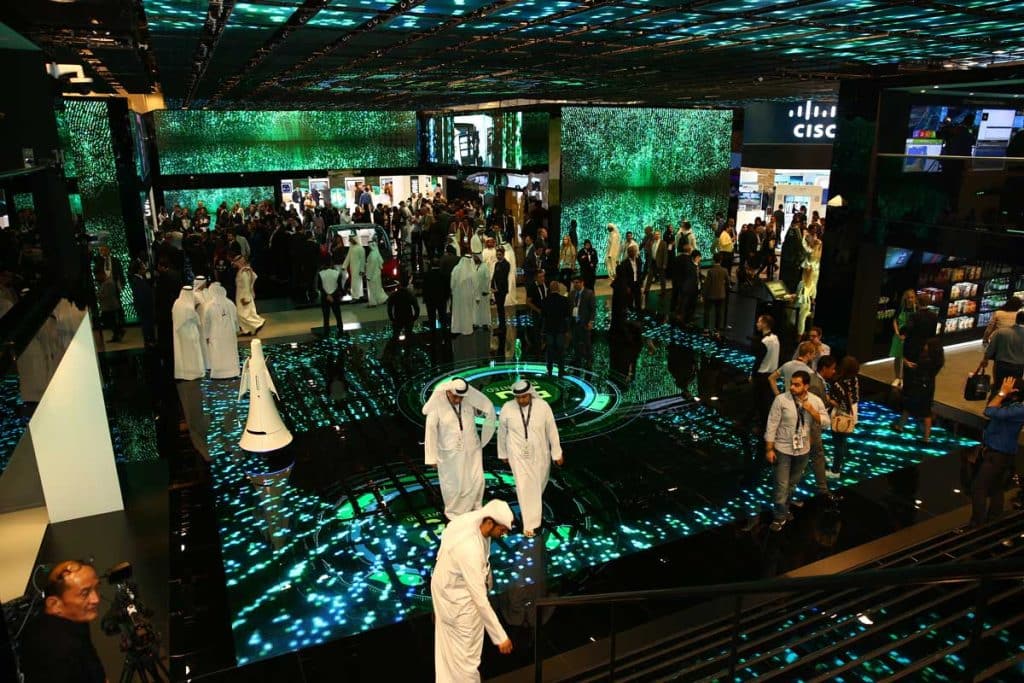
The region shows the best standards of how a government can accept, implement, and integrate innovations, says Ilman Shzhaev, founder and CEO of Farcana.
After all, Dubai is already a known leader in terms of technological integrations and adoption.
Governments around the world keep promising such openness, but Dubai is one of the few regions where words have turned into deeds.
For example, communications between entities registered in the UAE pass smoothly and fast, mostly due to the lifting of regulatory barriers.
So if VARA is the first to enter and attempt to regulate the metaverse, chances are high that it will see success. Local IT businesses registered in Dubai will have no problems communicating with the UAE government, so those attempting to enter after VARA should have no issues doing so.
That streamlined communication means that new ideas and policies get to the right people as soon as possible.
In this way, state representatives can easily gather feedback on their initiatives — from ideas to implementation, and progress can continue to move forward.
Dubai’s focus on the metaverse and digital economy
Dubai’s ‘next priorities’ will include the development of the digital economy as well as access to new markets, Sheikh Hamdan bin Mohammed bin Rashid Al Maktoum, Crown Prince of Dubai and Chairman of Dubai Executive Council, said during a visit to the Dubai Chambers.
The Dubai Crown Prince emphasised the importance of working continuously to consolidate Dubai’s position as an attractive business and investment destination.
Sheikh Hamdan bin Mohammed said: “The Dubai Chambers have played a significant role in Dubai’s economic development. Today, we look forward to maximise this role in the field of digital economy, technical investments, and building new global economic opportunities.”
“Our next priorities are: the sustainability of our family businesses, the development of our digital economy, and access to new markets. All government and private entities will work as one team to achieve these priorities.”
The Dubai Crown Prince’s statements were made after he toured the facilities and departments of the headquarters of Dubai Chambers, the state-run news agency, Wam, confirmed.
Sheikh Hamdan added: “We have the best business environment, and most of all, we have Sheikh Mohammed bin Rashid’s future vision for Dubai to be the main hub of the new global economy.”
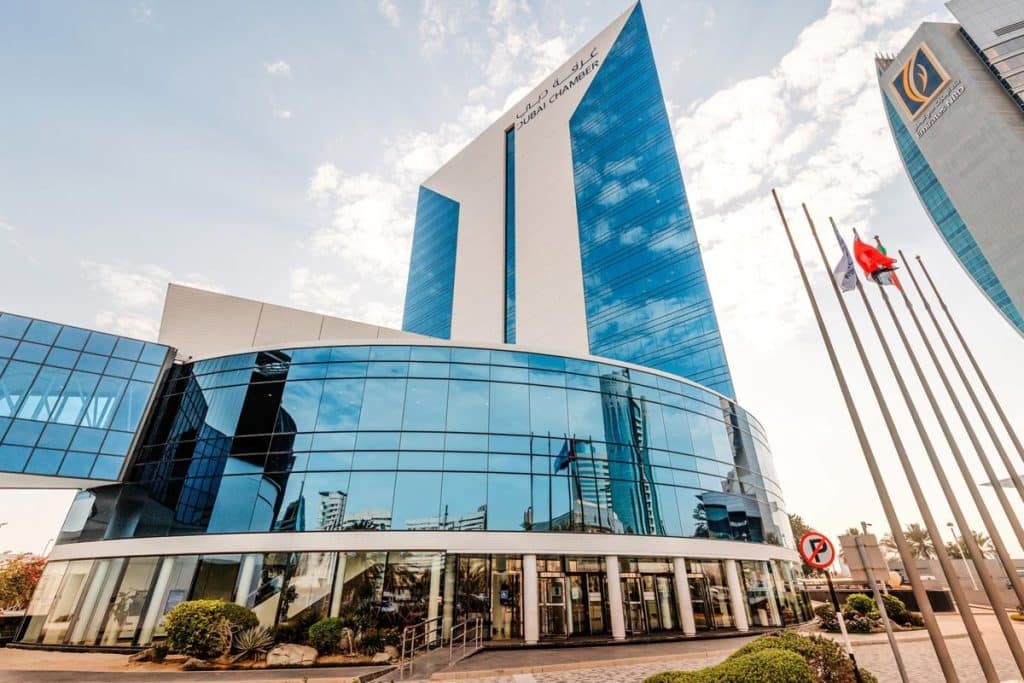
Sheikh Hamdan stressed the importance of implementing the directives of Sheikh Mohammed bin Rashid Al Maktoum to promote an attractive and competitive environment for investment that:
- improves ease of doing business in Dubai,
- contributes to raising the volume of foreign trade, and
- develops the digital economy sector
The Dubai Crown Prince Sheikh Hamdan bin Mohammed and Sheikh Maktoum bin Mohammed, the Deputy Ruler of Dubai, have already directed the formation of a task force to track the latest developments in the digital economy, including technology and metaverse trends.

